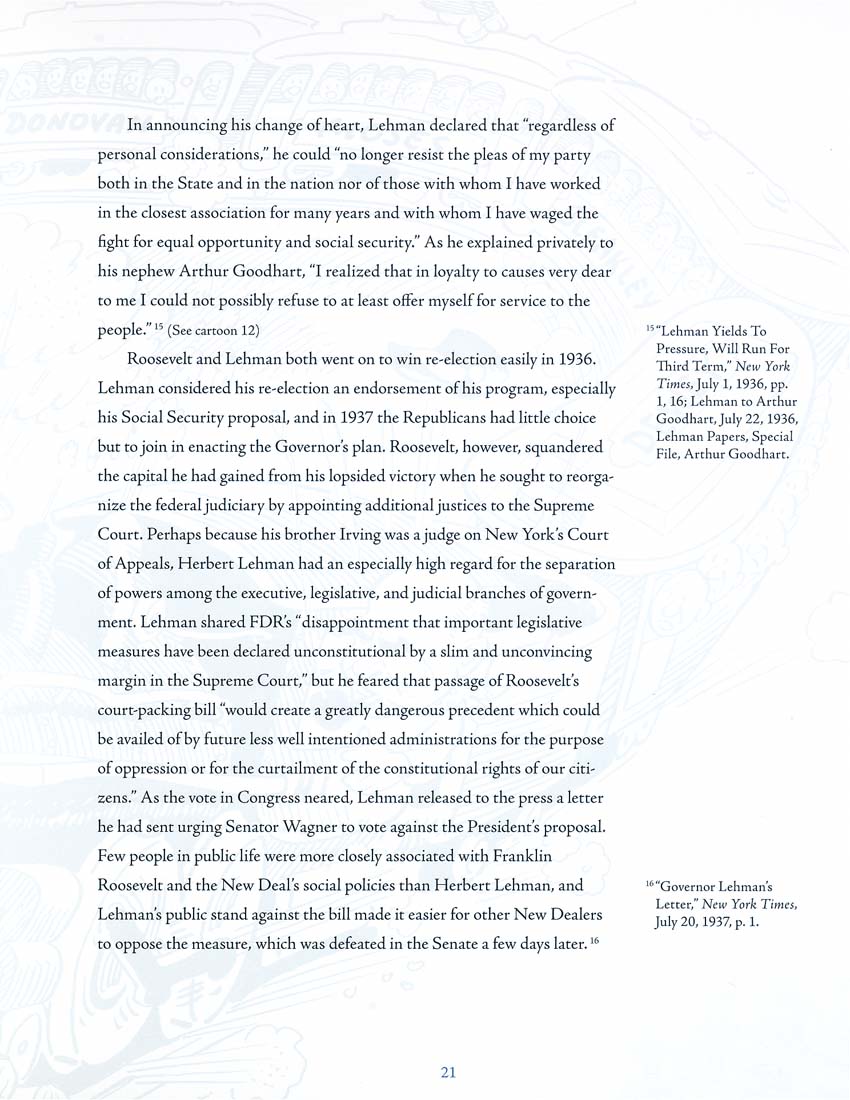In announcing his change of heart, Lehman declared that "regardless of
personal considerations," he could "no longer resist the pleas of my party
both in the State and in the nation nor of those with whom I have worked
in the closest association for many years and with whom I have waged the
fight for equal opportunity and social security." As he explained privately to
his nephew Arthur Goodhart, "I realized that in loyalty to causes very dear
to me I could not possibly refuse to at least offer myself for service to the
people." ^^ (See cartoon 12)
Roosevelt and Lehman both went on to win re-election easily in 1936.
Lehman considered his re-election an endorsement of his program, especially
his Social Security proposal, and in 1937 the Republicans had little choice
but to join in enacting the Governor's plan. Roosevelt, however, squandered
the capital he had gained from his lopsided victory when he sought to reorga¬
nize the federal judiciary by appointing additional justices to the Supreme
Court. Perhaps because his brother Irving was a judge on New York's Court
of Appeals, Herbert Lehman had an especially high regard for the separation
of powers among the executive, legislative, and judicial branches of govern¬
ment. Lehman shared FDR's "disappointment that important legislative
measures have been declared unconstitutional by a slim and unconvincing
margin in the Supreme Court," but he feared that passage of Roosevelt's
court-packing bill "would create a greatly dangerous precedent which could
be availed of by future less well intentioned administrations for the purpose
of oppression or for the curtailment of the constitutional rights of our citi¬
zens." As the vote in Congress neared, Lehman released to the press a letter
he had sent urging Senator Wagner to vote against the President's proposal.
Few people in public life were more closely associated with Franklin
Roosevelt and the New Deal's social policies than Herbert Lehman, and
Lehman's public stand against the bill made it easier for other New Dealers
to oppose the measure, which was defeated in the Senate a few days later, ^^
'^ "Lehman Yields To
Pressure, Will Run For
Third Term," New York
Time5,July 1,1936, pp.
1, 16; Lehman to Arthur
Goodhart,July22,1936,
Lehman Papers, Special
File, Arthur Goodhart.
'^'"Governor Lehman's
Letter," New York Times,
July 20, 1937, p. 1.
';
|








